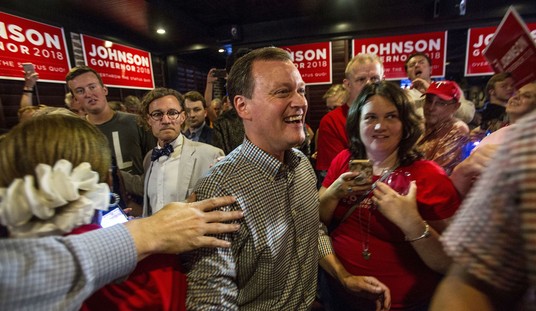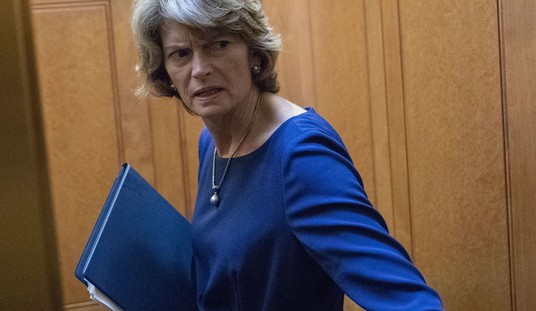
A positive trend is occurring across the country in that state legislatures are starting to take up the issue of free speech on public college campuses. A variety of states- red, blue and purple- have seen bills introduced or legislation signed into law. Despite these gains, which seem to have bipartisan support, there is still much ground to be made up if our public college and universities are to become the incubators of future voters and leaders.
Considering the fact that in many polls those of the college-age generation seem to accept some limits on the First Amendment’s Free Speech Clause, the mere passage of legislation will not cure the ill that affects the minds of our youths. For example, in response to a bill signed into law by Governor Haslam in Tennessee which banned free speech zones on college campuses, the American Association of University Professors voiced their opposition stating:
…(it) interferes with the institutional autonomy of colleges and universities by undermining the role of faculty, administration, and governing board in institutional decision-making and the role of students in the formulation and application of institutional policies affecting student affairs.
Those are a lot of words for saying they- the colleges- want to decide what can and cannot be said on campus, and where or where not it can be said, if it is to be said at all. Bills banning college free speech zones have been proposed or signed into law in California, Colorado, North Carolina, Texas, Utah, and Wisconsin. There is pending legislation in the following states that address other areas of free speech rather than “free speech zones:” Illinois, Lousiana, Michigan, and Virginia.
Free speech zones have their origin in the Vietnam era when colleges, in an effort to safely contain antiwar protests, specified where such protests could take place on campus. Unfortunately, colleges later used these zones to limit debate in the public sphere on campus to only these designated areas. A perfect example is the case of Kevin Shaw at Pierce College (CA) who attempted to pass out Spanish-language versions of the Constitution. He was stopped by the administration because his attempts were outside the college’s designated free speech zone which consisted of 616 square feet on a 426-acre campus. He sued the college and won his case.
These zones are one obvious example of First Amendment violations and although we are mindful that free speech protections do not necessarily mean that campuses should abandon an atmosphere conducive to learning, colleges have taken it to extremes. For example, under the guise of prohibitions against harassment, free speech in the classroom, at lecture halls, in dormitories and cafeterias, and especially with invited speakers has been limited through a college-sanctioned heckler’s veto against speakers or ideas that may not mesh with the liberal leanings of many colleges.
In the past two years, at a minimum, we have been witness to conservative speakers being heckled, threatened, rioted against, or dis-invited from speaking. Usually, the excuse of “student safety” is given and the speaker is charged a “security fee.” In several instances, we have seen actual security officials stand-down against protests before or during the presentation by the conservative speaker. In one example, although paying a security fee, a presentation by Milo Yiannapolis ended abruptly when members of Black Lives Matter took over the stage and blew loud whistles and pulled the microphone from his hand. Security stood by and did nothing.
Today’s college student lives a coddled existence where they are shielded from thoughts, ideas and words that may be contrary to what today’s educational system from an early age instills in them. It is no wonder that some colleges actually provide “safe spaces” for students who are so offended by the mere presence of a speaker on campus that they are provided with stuffed animals and Play-Do to ease their tensions and anxieties. That is not the hallmark of a college education; that is a common practice in kindergarten.
Another area of concern is who speaks for the students. Free speech is only truly free if students decide who speaks for them. They do this by regularly joining together with like-minded students to form associations based on similar political, ideological, or religious foundations. Some colleges have developed policies to prevent or block such actions. Particularly in the case of religious or faith-based groups, under the guise of nondiscrimination policies, religious groups have been denied recognition on campus, or have had their previous recognition rescinded. And it is not just Christian groups. In 2005, LSU denied recognition to a Muslim group that had met on campus for many years previously.
Certainly, campuses and colleges have the right to maintain order and an atmosphere of safety for all students. But, when is the last time anyone heard of a liberal or radical invited speaker being dis-invited, shouted down, protested against, or a riot breaking out? You can’t because it does not happen. These actions are overwhelmingly perpetrated against conservative speakers, some of whom are branded “racist,” “sexist,” “xenophobic,” or “homophobic” because they may make assertions with which others disagree.
The events in Charlottesville may be instructive in this area. The night before a legal rally with a permit was scheduled off campus, neo-Nazis and those who were clearly racist led a march through the campus of the University of Virginia. This was obviously a unlawful assembly since they had no permit to do so, nor were they invited on campus. However, despite the presence of college police, the local police and state police, nothing was done- no one arrested, no one given a citation, nothing! Perhaps, if the authorities had done their job that night, there would not have been the resulting violence and a death the next day.
But what we are talking about here does not involve unlawful rallies by neo-Nazis and racists of every stripe on campus. We are talking about people like a recognized professor (Charles Murray), a rhetorical bomb-thrower (Milo Yiannapolis), someone who knows the negative aspects of Islam from the inside (Ayaan Hirsi-Ali), or just someone with who people disagree with his political leanings (Ben Shapiro). It is also used against a female African-American who ascended to the heights of American foreign policy leadership (Condoleeza Rice). Yet, we see no security fees being exacted from people like Angela Davis, we see no protests against speakers representing Black Lives Matter, and we do not see John Kerry, Samantha Powers and others being dis-invited from speaking on campus, or at a graduation ceremony.
Hopefully, the laws passed and those being considered will lead to a better semblance of order on college campuses, and where all viewpoints and all association of students will be treated equally. The status quo is an insult to the First Amendment. The Left may be in the driver’s seat today, but they may one day find they are not. It will then be they who will suddenly become great defenders of the Free Speech Clause. And we know that for a fact because it was they who once fought for free speech on college campuses and who now use those very things they fought for and won used against those with who they disagree. It is they who turned free speech on its head and it is they who will now fight to retain the advantage they achieved.
{Special note: If you feel strongly about this issue, I strongly urge you to make a minimal donation to the Foundation for Individual Rights in Education who are doing a great job in this important area.}














Join the conversation as a VIP Member